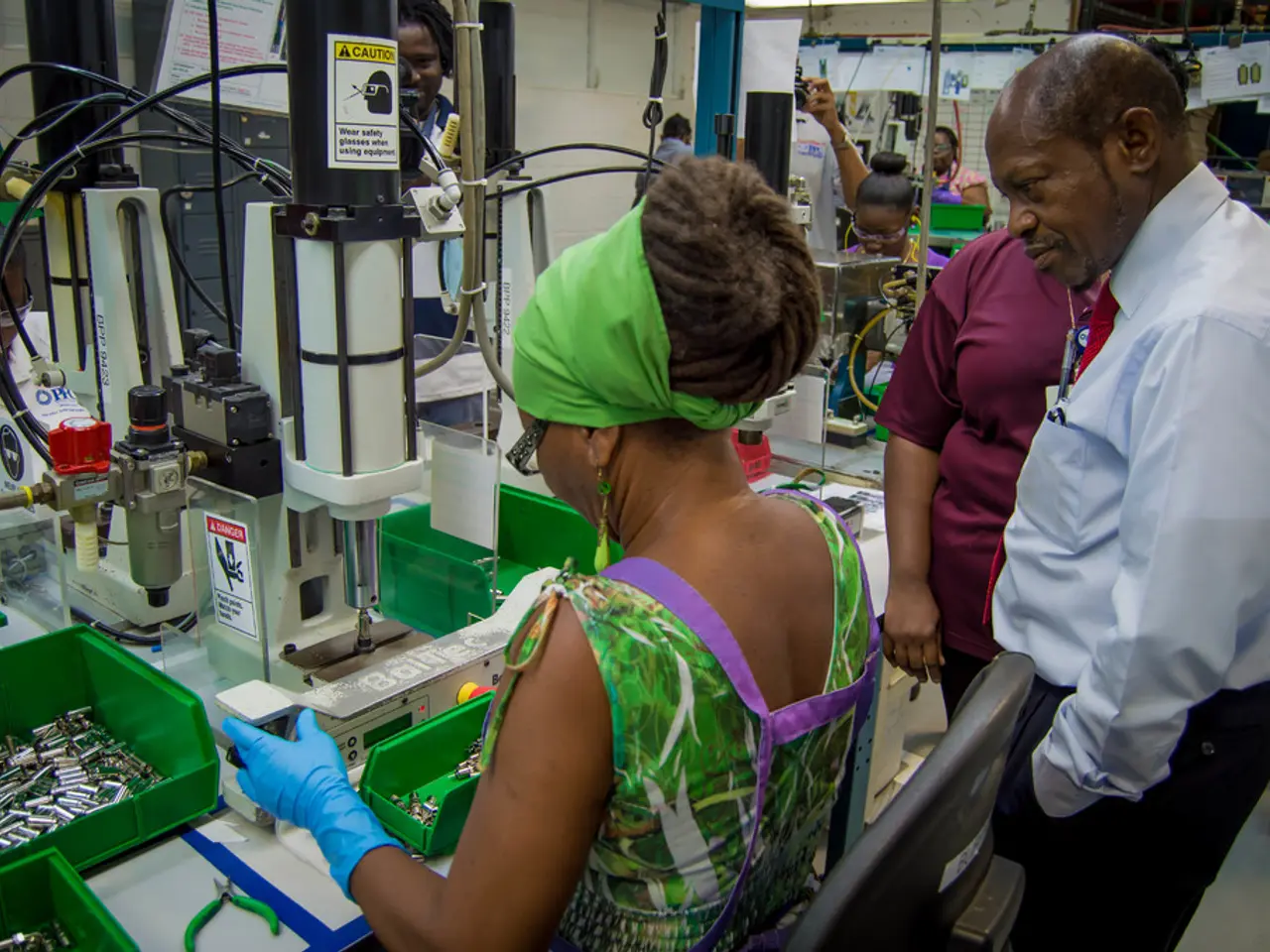Emerging Giants: Companies on the Verge of Achieving a $1 Billion Valuation
In the dynamic and ambitious startup landscape of 2025, a new breed of unicorns is expected to rise, focusing on AI Infrastructure, Green Transformation, Silent Decentralization, B2B Automation, and Local Startups with Global Scalability. These future unicorns share common characteristics that set them apart from their predecessors.
The United States remains the dominant hub for emerging unicorns, with 219 startups valued between $500 million and $1 billion as of early 2025. This is more than double the number of unicorns in India and China combined, indicating a higher likelihood of rapid scaling to unicorn status for U.S.-based startups.
Artificial intelligence (AI) is foundational in 2025, powering over 6.2% of all global startups and making up nearly 9.2% of unicorns worldwide. Startups that leverage AI to solve real-world problems, boosting productivity, accelerating innovation, and transforming industries, are particularly poised to reach valuations exceeding $1 billion.
Unicorns tend to arise from sectors driven by sweeping technological changes, such as AI, cloud computing, mobile apps, and advanced technologies like space exploration. For example, leading unicorns include those working on superintelligence AI models and cutting-edge cloud infrastructure.
Companies are increasingly staying private longer and raising significant venture capital and private equity funding, delaying IPOs. This abundant capital inflow helps startups scale rapidly without public market pressures. The surge in private funding since the 2008 financial crisis continues to fuel unicorn growth.
The most valuable unicorns in 2025 often have visionary founders and leadership teams who attract massive funding rounds, supporting rapid valuation jumps. For instance, Safe Superintelligence raised valuation from $5 billion to $30 billion in less than a year, largely on investor belief in its leadership and vision.
Promising early-stage startups include Kindo AI, an secure business assistant, Tome, an AI presentation tool, and BioAge, focusing on drug discovery focused on aging. Other notable startups include Webacy, based in San Francisco, which manages inheritance and emergency planning for digital assets like cryptocurrencies or NFTs, and Orbital Materials, based in Boston, which uses deep learning models to design new materials in record time.
The next unicorns are solving structural problems with robust technology, long-term vision, and ethical commitment. For instance, CarbonChain, based in London, offers tools to calculate, track, and report carbon emissions in real-time across supply chains, while Runwise AI, based in New York, uses machine learning to optimize residential building heating systems, reducing emissions and energy consumption by up to 30%.
Metaview, based in Bangalore, automates note-taking, interview analysis, and bias detection in hiring processes, while Flock Safety develops license plate readers and AI-based gunshot detection systems. Unreal Foods, from Berlin, develops lab-cultivated proteins using microbial fermentation, achieving a nearly identical taste to animal products.
Sana Labs, based in Stockholm, focuses on corporate training through personalized learning, while Mistral AI, based in Paris, has gained attention for releasing powerful and transparent language models. ElevenLabs, based in London, is known for hyper-realistic voice synthesis, used for audiobooks, dubbing, customer service, and more.
In conclusion, the startups most likely to become unicorns in 2025 are primarily technology-driven firms, especially those centered on AI innovation, based in the U.S., supported by robust private funding, and led by visionary teams focusing on scalable, transformative solutions across sectors. Founders are advised to chase problems worth solving, and valuation will follow.
- In the bustling startup environment of 2025, investing in technology-driven businesses, particularly those focused on AI innovation, is a strategic move for potential unicorn status.
- As the US continues to be the dominant hub for emerging unicorns, businesses tangled in AI, finance, and technology are more likely to gain the significant venture capital required for scaling and rapid growth, following the trend of delayed IPOs.




